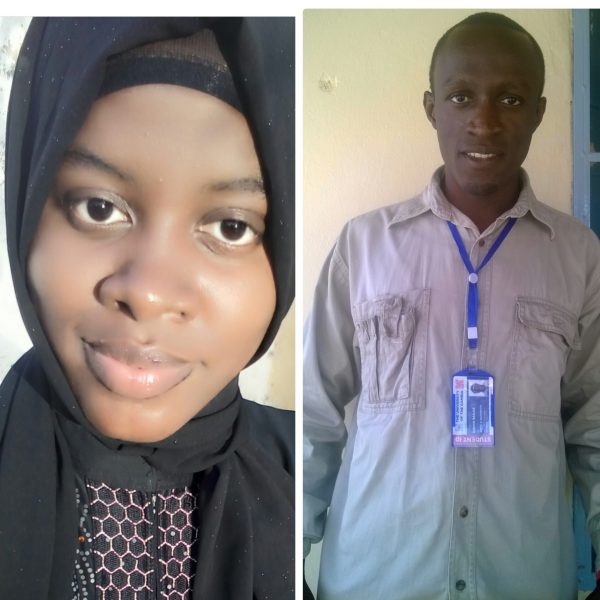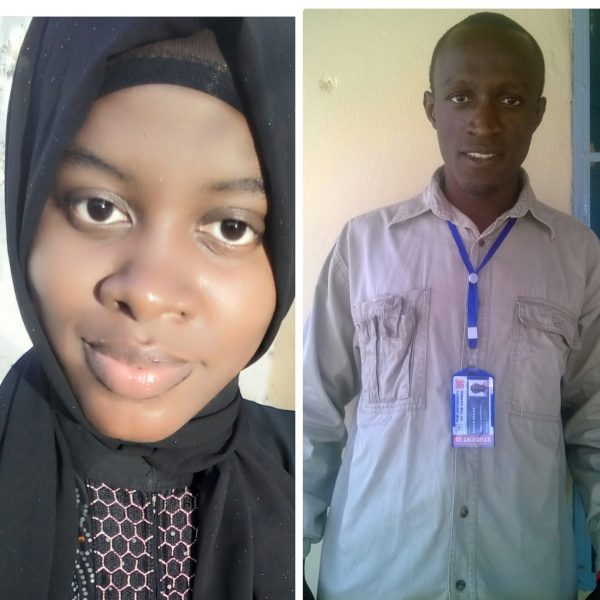 By Sanna Badjie & Rohey Fofana
By Sanna Badjie & Rohey Fofana
We are privileged and honored to present this paper entitled: “Overcoming the challenges for a truly Liberated Africa” in respect of the commemoration of Africa’s Liberation day. A day for reaffirming our commitment to pan-Africanism; a day of reflecting the realisation of a united Africa envisioned by Kwame Nkrumah, who warned that, we either unite as Africans or perish.
It was a day to reflect on how Africa can achieved the maximum amount of cooperation while keeping the goal for continental unity in view all the time and economic independence envisioned by Julius Nyerere, Africa’s greatest philosopher and theoretician. The day symbolizes the determination of the people of Africa to free themselves from foreign domination and exploitation.
African states continue to experience obstacles that holds Africa’s development process in all social, economic and political dimensions. Leadership is a major problem in Africa. African experiences human degradation, political instability and economic exploitation, which are perpetrated by incompetent and illegible leaders holding the leadership positions in their countries.
The youngest country in Africa, South Sudan for example, today experiences a devastating armed conflict which witnessed the internal displacements of tens of thousands of people, extra judicious killings, raped and other sexual activities, enforced disappearance and hunger perpetrated by the Salva Kiir, president of South Sudan and his former vice president Dr. Riek Machar due to their lust for power.
The political crises in the Democratic Republic of Congo, a country regarded as very wealthy in terms of resources, struggles to fun and update voters’ register and other electoral activities, which resulted to the unconstitutional extension of President Kabila’s presidency and thereby causing a lot of political disorder and the killing and displacement of many civilians.
The current political crisis in Cameroon in its English and French speaking regions caused by a historical tragedy of imperialism and the lack of an organized leadership to unify the country, plagued the country into a devastating armed conflict. However, these manifest the lack of leadership in Africa.
Africa need leaders who are intellectually and ethically mature and can examine and address the political rights and wrongs of all political, economics, and social agendas that will lead to the prosperity and unity of the continent and such leaders should possess the following features: transparency,wisdom, accountability, probity, selflessness and mercy.
Election
Elections in Africa as Kofi Annan puts it in his BBC Hard Talk interview with Zainab Badawi (2018), are meant to lead to peaceful and democratic rotation of leadership often cause violence. This was manifested in Kenya’s 2007 election and the rivalry between the Luos and the Kikuyu tribes, recent South Sudan conflict which turned into an ethnic conflict between the Dinkas and the Neur, the 2016 post-election disturbances between the Jolas and the Mandinkas in the Gambia etc . If the process that should lead to a democratic process is turned into violent then the realization of African united becomes a distance goal to achieve.
However, there should be a total transformation of the parochial political culture or tribal alignment to political parties and the use of tribe and tribalism as political mobilization to win government power. Sovereign Africans should realized that alignment to political parties should be based on ideological master plans to make sure we entrust people in our political officers who have the knowledge and wisdom to lead and ethically sound to fully represent our wishes and aspirations both nationally and internationally.
Neocolonialism
Neocolonialism is a strategy employed by our former colonial masters to continue controlling both our political and economic processes thereby undermining the pan-Africanist agenda of a united Africa and compelled our African leaders who lack ideas, policies, and programmes to utilize our human and natural resources for development to compete for foreign aid in the re-branded and enticed neocolonial institutions such as the International Monetary Fund (IMF), The Commonwealth etc.
The Gambian government under the stewardship of Adama Barrow had sleepless nights to make sure Gambia is readmitted into the Commonwealth for possible aid and developmental assistance and recently flew to Brussels to beg for funds in a donor conference to fund the Gambia’s National Development Plan (2018-2021). His counterpart, Emerchine Managagwa of Zimbabwe like president Barrow, is almost not sleeping to make sure his country is also readmitted into the Commonwealth in anticipation for aid to fun the forthcoming elections.
Another neocolonial institution that keeps interfering in our political and economic process is the IMF. The IMF as described by Nyerere (1985) in his interview with Anver Versi of The New African Magazine,“has become the substitute for a colonial empire controlling their economic. And will dawn upon the third world countries one day that they are not free”. This neocolonial institution was established in (1944 )to deal with problems of developed countries. It was never design to improve or deal with the problems of developing countries.
The African leadership should take note of Kwame Nkurumah’s assertions in his book Neocolonialism the last stage of imperialism (1965) that “the essence of neocolonialism is that state which is subjected to it, in theory, independent and has all trappings of international sovereignty. In reality, it economic system and political system is directed from outside”
Africa should however, put more of her energies as a continent in the cooperation and unity of African states as per the AU objectives of rekindling the passion for pan-Africanism, a sense of unity, self-reliant, integration, and solidarity. We should respect and work harder to the realization of the 2018 Kigali protocol on the African Continental Free Trade Area (AfCFTA) , protocol on free movement of people, and AU’s commitment for a Single Africa Air Transport Market among others which have the potentials to promote African economics and create millions of employment opportunities for young people in Africa.
Finally, As Prof. Baba Galleh Jallow put it in his paper The copycat state… presented at the University of the Gambia in 2017: “Africa’s crises are linked to the failure of Africa governments to transform in a creative manner the geopolitical , human and natural resources of the continent in respond to the challenges of independent nation statehood.” That being, until we have an intellectually and ethically matured leadership and critical pan-African citizenry , the challenges that is killing our energies as a continent for true liberation will triumph.
The authors are Political Science students at the University of the Gambia






Congrats young ones on your presentation. I hope you will also find an additional perspectives from Madi Jobarteh’s and Dida Halake’s perspectives on the subject.
My only objection would be the statement which seems to imply that the post elections disturbance in The Gambia was between the Jolas and Mandinkas. I am aware of the authors’ credentials (being political science students at UTG) and presence on the ground (as opposed to my humble self: neither a student of political science, nor present on the ground), but I do not think such a statement is a true account/understanding of the post election incidents in The Gambia, now or before.
In my view, such statements are very dangerous and could play right into the hands of those who may want to stir up sectional/sectarian conflict in our country, and the authors have done very well to remind us about the dangers of such ethnic manipulations, as seen in South Sudan and other places.
The truth is that pre/post election violence since 1996 has been mainly between the APRC and the UDP, none of which consist of a single ethno-linguistic group. I can confidently say, even without any investigation of the subject, that every national ethnic group could be found represented in these parties (now or before) and therefore, we must never reduce these senseless and unnecessary acts of violence and impunity to a narrative of ethno-linguistic conflict, because that’s not what it is.
The fact that we are a young country of 53 years makes tracing the history of political conflict and pre/post elections violence in The Gambia a much easier exercise than in many other places.
I think when we look at the period immediately preceeding our independence and reflect on the strategies adopted by the two main political protagonists of that era (UP vs PPP), we might understand why pre/post elections violence is still an occurence in our country, because the same strategies has continued to date.
Political association, which in a genuine democracy should be on the basis of policy and/or ideology, was successfully solicited on group considerations from the very beginning, thus inculcating an “us and them” mentality in the consciousness of the masses, where allegiance and loyalty to the group, is either the main determinant or one of the main factors for political support.
Such a mindset reduces the political opponent to a real or imagined mortal enemy, deserving to be battered or humiliated into submission. The consequences of this mentality is evident everywhere in our history and even today: family breakups, community tensions and physical clashes, sometimes leading to loss of lives and properties.
Students of political science at the UTG must go beyond probing the existence of post election conflicts in The Gambia ( because that’s no longer in doubt) into providing answers to eliminating it altogether.
A good starting point, in my humble view, would be looking at the phenomenon of mass mobilisation and movement during the campaign period because this is an ever present factor wherever conflict between the main antagonists (APRC vs UDP) occurs.
When we look at countries where small campaign teams, rather than huge crowds, move around the country to meet “locals” and canvass for votes, we see a near absence of election related violence. Perhaps, that’s something we can seriously think about: no more mass mobilisation and convoys. Let’s have campaign teams that will visit their targets areas to deliver their messages.